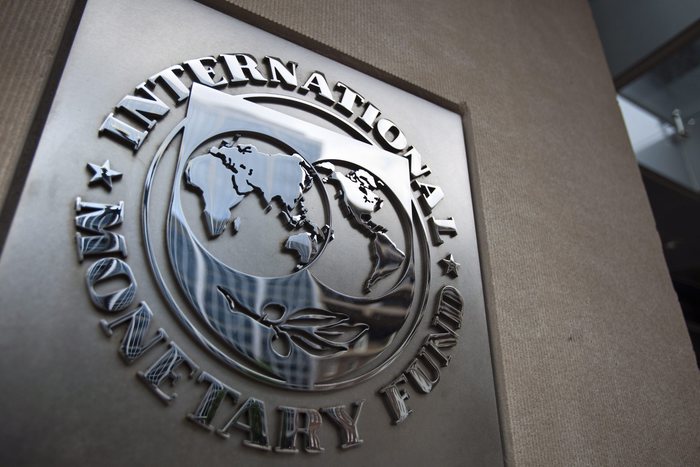Enlarge image
ECB headquarters in Frankfurt am Main: The ECB is in an impossible situation
Photo: Karl-Heinz Spremberg / CHROMORANGE / IMAGO
Actually, the job of a central banker requires a peculiar quality: absolute sobriety.
Committed only to pure reason, the managers of money should make decisions that do justice to the goal of long-term stability, regardless of current moods.
At the moment, however, they give a completely different impression: their actions show a hint of panic.
Around the world, they are rapidly pumping up key interest rates.
Inflation is galloping away and central banks are trying to tighten the reins to curb price momentum.
In many countries, interest rates have been raised sharply since the summer of 2021 - sometimes drastically, according to figures from the Bank for International Settlements (BIS).
In the past week, the US Federal Reserve Bank hiked rates again by 0.75 percentage points, up 2.25 percentage points since March.
It's the Bank of England's turn on Thursday, probably with a rate hike of 0.5 points.
Many emerging countries are stepping on the brakes even harder: the Hungarian National Bank recently raised interest rates for the 15th time in a row.
Central bank loans there have become more expensive by more than ten percentage points within a year.
In the course of the upheavals of the past few months - conflicts with Russia, scarce energy, faltering international supply chains - Viktor Orbán's state-populist economic model has become fragile: the currency is losing value.
Investors are beginning to question the state's solvency, which is reflected in rising yields on Budapest government bonds.
Whether in Eastern Europe, Latin America or Asia - many central banks in the emerging countries are currently hyperactive.
In response to rising inflation and exchange rate turmoil, they have raised interest rates drastically over the past 13 months.
Argentina: up 14 percentage points.
Chile: up 9.25.
Brazil: up 9. Czech Republic: up 6.5.
Poland: up 6.4.
Colombia: up 5.75.
South Africa and Philippines: up 1.25.
And there is still no end in sight.
Strong dose, weak effect
The longer inflation lasts, the more violent the reactions will be.
The Fed started with 0.25 point increments and has now tightened pace to 0.75 point increments.
The Hungarian central bank recently raised interest rates by a full percentage point.
The dose increases – but the immediate effects still leave a lot to be desired.
This has never happened before: The current worldwide "synchronized monetary tightening" is "historically without precedent", according to the International Monetary Fund (IMF).
And the consequences of this uncoordinated emergency braking will be painful.
The central banks are risking a deep global recession in order to break the inflation dynamic.
In case of doubt, this is necessary, say the IMF experts: "Tighter monetary policy will inevitably have real economic costs, but delays would only prolong the problems." The central banks must now remain on course "until inflation is tamed."
I'm not completely convinced.
The same institutions that have been telling us for the past decade that central banks need to keep pumping cheap money into markets to avoid deflation are now on the opposite trip: now, the monetary policy turnaround can hardly be tough enough.
The consequences of the flood of money
As understandable as the current actions are, it is unclear whether they will ultimately prove correct.
If everyone acts according to the same pattern, this can have unexpected side effects.
Until recently, it was taken for granted that we were in an era of extremely low interest and inflation rates.
Accordingly, “quantitative easing” – the large-scale buying up of government bonds – spread as a central bank instrument.
more on the subject
Inflation in Europe: »I shower less to see my grandchildren« by Jan Petter
Italy and the new euro crisis: Everything depends on DraghiA column by Henrik Müller
The risks and side effects of this flood of money are somewhat adventurous, and they are part of the cause of the current inflation shock: we are dealing with an unparalleled flood of liquidity that is now – after the pandemic has abated, the outbreak of the Ukraine war and the increasing fragmentation of the global economy – encounters an economic structure with limited production possibilities.
The central banks of the euro zone are now among the largest creditors of the member states, as the Bundesbank calculates in its current monthly report: 39 percent of the outstanding German government debt is with the euro central banking system, in Spain it is a third, and in France and Italy a quarter of the outstanding debt Liabilities.
In crisis situations such as the pandemic, it may be necessary for the state central banks to lend money to the respective finance minister.
As a permanent measure, quantitative easing works like an economic sleight of hand.
Market economy is actually different.
But for years there was a consensus among international central bankers that this was exactly what was needed.
That is past.
Quantitative easing is now followed by “quantitative tightening” – the shrinking of central bank balance sheets stuffed with government bonds.
advertisement
Henrik Mueller
Short-cut politics: How permanent outrage destroys our democracy
Publisher: Piper
Number of pages: 256
Publisher: Piper
Number of pages: 256
Buy for €22.00
price inquiry time
07/31/2022 4:31 p.m
No guarantee
Order from Amazon
Order from Thalia
Order from Weltbild
Product reviews are purely editorial and independent.
Via the so-called affiliate links above, we usually receive a commission from the retailer when you make a purchase.
More information here
Only a few countries have not joined the big monetary turnaround so far, including the Bank of Japan and the Turkish central bank, which is being pushed by President Erdoğan on a weird pseudo-religious trip.
The European Central Bank (ECB) initiated a very cautious tightening just last week.
After all, it has abolished the fees that commercial banks have to pay for their central bank deposits.
But the key interest rate is still zero.
It has not stopped buying bonds completely, but has now concentrated on individual euro member states should their long-term interest rates rise too much.
The ECB is in an impossible situation as long as the eurozone does not become more integrated in terms of fiscal policy (see my column in the current manager magazin).
Similar to the Bank of Japan, the Frankfurt central bank has to take heavily indebted national budgets into account.
This limits their ability to act.
Everyone runs in the same direction
The central banks are concerned with their credibility.
They want to prove that they are still capable of fighting inflation effectively.
In the emerging markets, there is also the fact that they are attempting to alleviate the devaluation pressure on their currencies by raising interest rates more than those of the world reserve currency, the dollar.
Weakening currencies mean that imports are becoming more expensive, investors and speculators are getting restless and withdrawing funds, and debt crises are becoming more likely.
Accordingly, the central banks of the emerging countries are braving themselves against the devaluation pressure with vigorous interest rate hikes.
It's just that it typically takes one to two years for interest rate hikes to have a braking effect on the real economy – and thus also for inflation to be dampened.
But the central banks want to see here and now that they can get inflation under control.
They are waiting for indicators that show that, despite shattered trust, they are still being taken seriously by citizens, companies and financial markets.
But they may be doing too much overall (except for the ECB, which is definitely doing too little too late).
As a result, they would produce a global recession that is worse than necessary.
In the past, too, individual central banks were able to apply sharp monetary policy brakes and thus choke off domestic demand too much.
But a diverse international economic environment cushioned such policy mistakes and stabilized the development.
But if the central banks around the world are synchronously pursuing the same strategy, such buffers are missing.
Everyone is running in the same direction - and at some point possibly hitting a wall.
Nobody can currently know what the right strategy is.
The economic and geopolitical situation is extraordinarily complicated.
War, hunger, lack of energy, plus supply chains that are stretched to the breaking point, as well as acute labor shortages because many people left the labor market as a result of the pandemic and immigration has declined - all of this has shifted economic structures.
Under these conditions, it is almost impossible to determine exactly how far the central banks will have to curb demand in order to get inflation under control.
Inaction is not an option, of course.
But the “a lot helps a lot” method also harbors considerable risks.
The most important economic dates of the coming week
Expand areaMonday
Exeter -
After Boris
- Second campaign appearance in race to succeed Britain's Johnson as Tory leader and Prime Minister.
Former finance minister Sunak and foreign minister Truss are running for the kingdom's top job.
In the coming weeks, the two candidates will meet in a series of events and TV interviews.
Frankfurt/M.
–
German economy
– The mechanical engineering association VDMA publishes figures on incoming orders in June.
Luxembourg -
The job gap
- The EU statistical authority Eurostat publishes key figures on unemployment.
ExpandareaTuesday
Reporting Season I
– Business figures from Fresenius, Fresenius Medical Care, Covestro, Symrise, Siemens Gamesa, Generali, BP, Ferrari, PayPal, Starbucks, AMD.
ExpandareaWednesday
Wiesbaden -
Germany's weakness
- The Federal Statistical Office presents new figures on German exports.
The difficult geopolitical situation shows how vulnerable the German economy is to foreign trade turmoil.
Frankfurt -
Inflation adjustment
- Third round of negotiations between Lufthansa and Verdi for around 20,000 ground workers.
The union is demanding 9.5 percent more wages.
Reporting season II
– Business figures from BMW, Commerzbank, Vonovia, Moderna, Evonik, ZF, AP Moller-Maersk, Hugo Boss, Veolia Environnement, Siemens Healthineers, Infineon, Société Générale.
Expand areaThursday
Wiesbaden - 08:00
Federal Statistical Office on exports in June 2022 (Federal Statistical Office - 65189, Gustav-Stresemann-Ring 11)
Dallas -
National Internationale
- Conservative Political Action Conference begins.
Ex-US President Trump, Senator Cruz and Hungarian Prime Minister Orban are fishing in the murky right.
Reporting Season III
– business figures from Lufthansa, Bayer, Merck, Beiersdorf, Adidas, United Internet, Schaeffler, Hensoldt, Crédit Agricole, ING, Hannover Re, Lanxess, Zalando, Banca Monte dei Paschi, Rolls-Royce, Glencore, Adecco, Conoco Phillips, Eli Lilly, Lyft, Amgen
ExpandareaFriday
Washington -
Overheated
- The US government will release data on the unemployment rate in July.
Reporting Season IV
– business figures from Allianz, Deutsche Wohnen, Deutsche Post, Aurubis, Rheinmetall, RTL.


/cloudfront-eu-central-1.images.arcpublishing.com/prisa/AWQDFA55JRFZ7EFY4XGGS3VAVQ.jpeg)




/cloudfront-eu-central-1.images.arcpublishing.com/prisa/C3LDLHDAXBBCFCHWBPELHN64FU.jpg)
